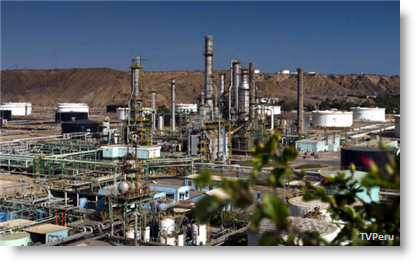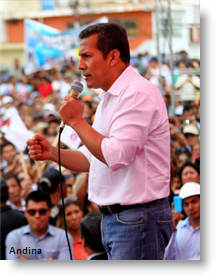
President Ollanta Humala kicked-off a multi-billion dollar project on Thursday that is to upgrade the Talara oil refinery on Peru’s north coast.
Humala said the $3.5 billion project is part of the government’s strategy to strengthen energy security and improve environmental standards, state news agency Andina reported. He also said it would provide some 14,000 jobs and contribute to the development of Peru, and the region of Piura, where Talara is located.
“This modernization should be remembered as a great investment project, thanks to a coherent policy,” Humala said during the groundbreaking ceremony. “We will place the first stone in the most modern refinery on the entire Pacific coast.”
The refinery is owned by state oil company Petroperu. The project to upgrade the facilities is intended to increase oil processing capacity to 95,000 barrels a day, from around 65,000 barrels per day. It is aims to lower the sulfur content in the fuel to 50 parts per million from 2,000 parts per million.
 The government has previously said that the project would be mainly be financed through Petroperu, with the remainder being paid for from the private sector, “but we cannot allow a state company that is turning a profit to be privatized,” Humala said.
The government has previously said that the project would be mainly be financed through Petroperu, with the remainder being paid for from the private sector, “but we cannot allow a state company that is turning a profit to be privatized,” Humala said.
There have been criticisms of the project, which is being undertaken by the Spanish company Tecnicas Reunidas. Economist Carlos Adrianzen wonders if PetroPeru will be able to pay back the investment, while ESAN graduate business school professor Alberto Rios considers the project unjustifiable, the result of a misunderstanding of the concept of energy security.
Other officials present at the ceremony included cabinet chief Rene Cornejo, Finance Minister Luis Miguel Castilla, Mines and Energy Minister Eleodoro Mayorga and Environment Minister Manuel Pulgar-Vidal.
The Talara refinery was first built in 1954 by Standard Oil of New Jersey (ESSO) and later nationalized by the Velasco military regime in 1968.





